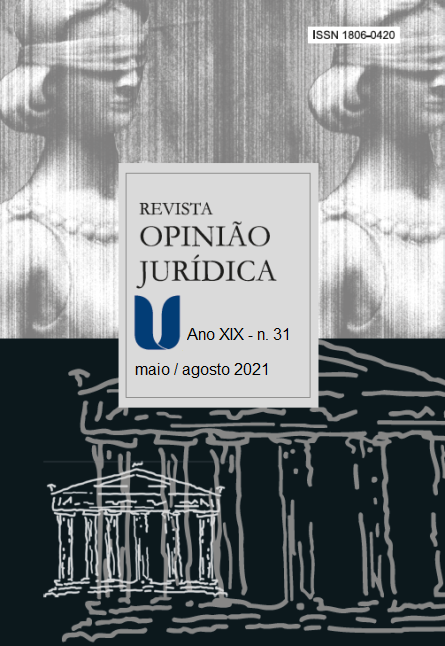ECONOMIC ANALYSIS OF LAW AND TAX CREDIT IN JUDICIAL RECOVERY
DOI:
https://doi.org/10.12662/2447-6641oj.v19i31.p33-74.2021Keywords:
Tax Credit, Judicial recovery, Economic Analysis of LawAbstract
Methodology: The methodology to be used is a deductive method, by means of an explanatory and descriptive approach, with jurisprudential and bibliographic research, national and foreign, all specialized in the core of the theme. The specific problem to be raised is whether it would be possible to include the tax credit in the judicial reorganization plan. To obtain a response that is technical, practical and academic, initially, it will be explained about the special treatment given to tax credit in Law 11.101 / 05.
Results: Afterwards, it will be shown that the power and privilege granted to the Tax Authorities, as it stands, in the literal terms of the law, in the judicial reorganization processes, is inefficient and that the installment conditions that were in force for many years they were also not efficient. In the same sense, the reasons that show that the current legislation does not create positive incentives for the taxpayer to join such installment will be exposed. In the end, as a response hypothesis, the reasons that make it impossible, legally, operationally and constitutionally, to include in the tax credit recovery plan, in view of the high transaction cost, will also be addressed.
Contributions: It appears that the power and privilege granted to the Tax Authorities, as it stands, in the literal terms of the law, in judicial reorganization processes, is inefficient. The installment terms that prevailed for many years were also not efficient. Current legislation does not create positive incentives for taxpayers to adhere to such installments. Currently, in our law, it is impossible, legally, operationally and constitutionally, to include in the tax credit recovery plan, given the high transaction cost.
Published
How to Cite
Issue
Section
License
CESSION OF COPYRIGHTS
The submission of articles to analysis for publication on Opinião Jurídica implies the author(s) transfers copyrights to Centro Universitário Christus – UNICHRISTUS for reproduction, publicizing, distribution, printing and publication, according to the Publication Norm 414R, Opin. Jur., Fortaleza, year 12, n. 16, p.1-414, Jan./Dec. 2014, costs to be bore by UNICHRISTUS, in whatever format or means that may or shall exist, in accordance to articles 49 and following of Federal Law 9.610/98.
1. In ceding copyrights, the author(s) agrees to do so in exclusivity, free of charge and for the totality of the work.
2. UNICHRISTUS may make the work, in its entirety or in parts, available for scholarly purposes, without altering its contents, except for small corrections that are deemed necessary.
3. The cession of copyrights is valid in all countries and for versions of the material in its original language or translated into a foreign language.
RESPONSIBILITY FOR THE CONTENT
By submitting an article, the author(s) declare to have sole responsibility for the content of the piece and is(are), therefore, responsible for any judicial or extrajudicial measures referring to it.
1. In case of joint authorship, all authors are considered collectively responsible, except when proved otherwise.



















